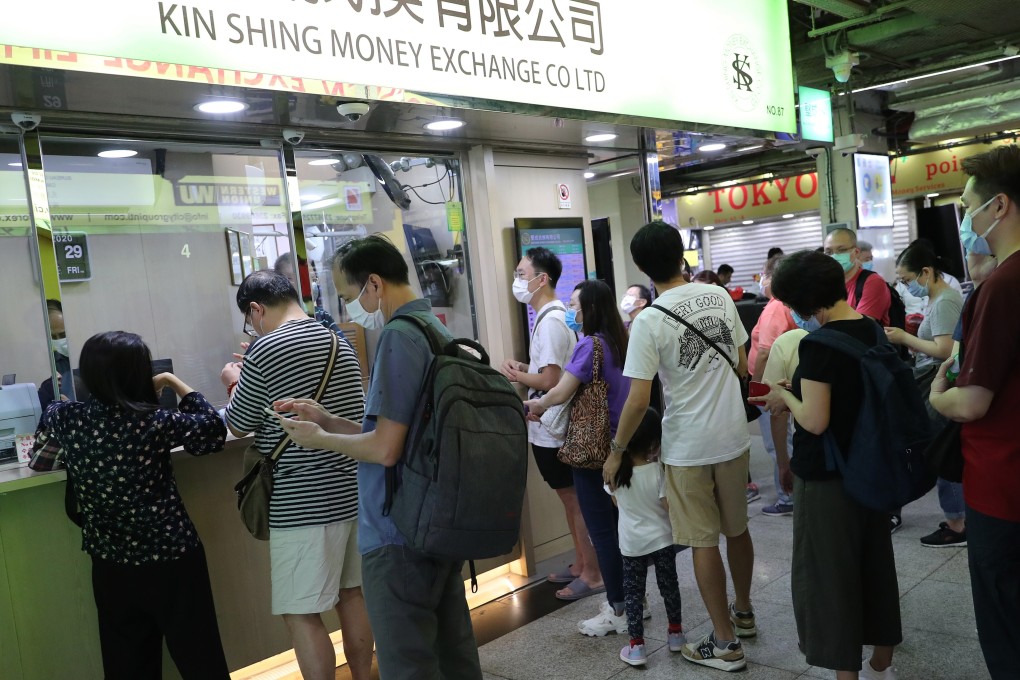Advertisement
Rush for US dollars forces Hong Kong money changers to turn away customers in droves after supplies run out
- Demand for the currency surged after China’s legislature endorsed a resolution on a national security law for Hong Kong, shop owners say
- Residents fear the city’s currency could be unpegged from US dollar
Reading Time:3 minutes
Why you can trust SCMP
0

A rush for US dollars has forced money changers in Hong Kong to turn away hundreds of customers after running out of the currency amid fears the United States could end the city’s preferential trading status.
According to money exchange store owners, demand for the US currency surged this week after China’s legislature endorsed a resolution for its top legislative body to craft a tailor-made national security law for Hong Kong. The law would criminalise acts and activities of secession, subversion, terrorism and foreign interference.

Residents feared the Hong Kong dollar could be unpegged from its US counterpart, following remarks by US Secretary of State Mike Pompeo that the city was no longer suitably autonomous from mainland China in light of the proposed law. The US has yet to reveal what actions it will take.
Hong Kong Monetary Authority chief executive Eddie Yue Wai-man said earlier this week the peg would remain the bedrock of the city’s financial system, with foreign reserves of more than US$440 billion. And the city had yet to show any noticeable sign of fund outflows from the Hong Kong dollar or banking system.
Queues formed at money changers in a number of Kowloon districts including Tsim Sha Tsui and Sham Shui Po on Friday, as residents waited for shop operators to replenish their US dollar supply.
Advertisement